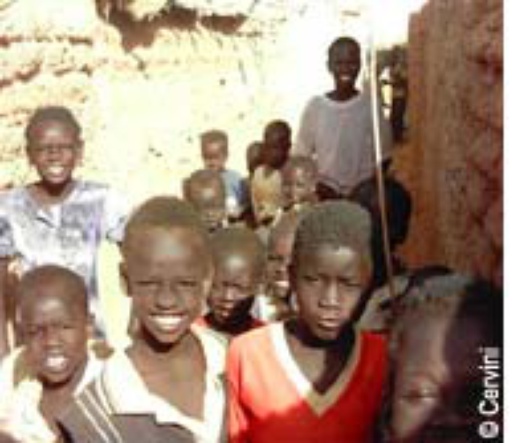Sudan: Between Amnesia and Snobbery
Published on
Translation by:
 ingrid su
ingrid su
Ethnic cleansing is taking hold in the region of Darfur. But Europe is distracted: it is more ‘chic’ to talk about Iraq… Brussels ought to assume its responsibilities.
 Sudan: the biggest country in Africa. A country that, just when peace between the North and the South after a civil war that lasted for more than 20 years has became a concrete possibility, has to face up to a dramatic humanitarian crisis in the western region of Darfur. A crisis that, as often as it occurs, has been regularly neglected by the mass media that always prefer the latest abduction in Iraq. It also happens that one of the ‘border’ countries of the EU, Italy, has decided not to recognise the refugee status of a group of 37 people claiming to be Sudanese and escaping from what Mukesh Kapila, the ex-UN humanitarian coordinator in Sudan, has compared to the ethnic cleansing in Rwanda. Of course, it then transpired that the refugees in question were not Sudanese. However, that does nothing to change Rome’s cynicism.
Sudan: the biggest country in Africa. A country that, just when peace between the North and the South after a civil war that lasted for more than 20 years has became a concrete possibility, has to face up to a dramatic humanitarian crisis in the western region of Darfur. A crisis that, as often as it occurs, has been regularly neglected by the mass media that always prefer the latest abduction in Iraq. It also happens that one of the ‘border’ countries of the EU, Italy, has decided not to recognise the refugee status of a group of 37 people claiming to be Sudanese and escaping from what Mukesh Kapila, the ex-UN humanitarian coordinator in Sudan, has compared to the ethnic cleansing in Rwanda. Of course, it then transpired that the refugees in question were not Sudanese. However, that does nothing to change Rome’s cynicism.
The West talks, Khartoum makes promises
In the meantime, one of the saddest chapters of “old Egypt’s” story continues – a country of black Pharaohs and recently, before the events of September 11, refuge for the patriarch of worldwide terrorism, Osama Bin Laden. A so-called ‘cease-fire’ between the military hired by the government of Khartoum and the guerrilla fighters divided into small resistance armies, accused of having given way to a revolt in early 2003, has not stopped the massacre of thousands of people and the flight of more than a million refugees who poured into Chad and eastern Sudan in the last year.
The useless visits from Powell and Annan, the recommendations of the African Union and the UN, have done nothing other than bring the government to promise the impossible in a situation that seems to have already got out of control for those who are ‘in charge’ today. The Arab guerrilla troops recruited by the government, the Janjaweed who fight on horseback with swords accompanied by pick-up trucks of militiamen armed to the teeth, no longer take orders from anyone. They enter villages, confiscate all the food and stock up with water, leaving behind a never-ending trail of blood that doesn’t even spare the local mosques.
Peace in the Desert
There are signs of insolent obscurantism towards the humanitarian crisis in Dafur from the European Union; its political attitude towards the Omar al-Beshir government fails to even scrape at the wall of silence that Khartoum is maintaining around a region where the sharia is applied according to the most brutal interpretation of the Koran. At the same time, the guided tours for Westerners are prepared with the greatest zeal by a government anxious to demonstrate how peaceful it is in the desert and show that foreigners’ accusations are merely stories invented in order to destabilise the government.
The truth is that the Sudanese people of Dafur are facing one of the most atrocious episodes in human history today without firm intervention from the international community. The supposed peace between the North and the South signed in Navivasha, Kenya to end a conflict that in the past created about 4 million domestic refugees and 2 million deaths, has certainly re-opened, as promised, the tap of economic aid from Khartoum’s government. Nevertheless, even if much of these funds are earmarked for development projects, they may well end up being used to secure the ‘new’ front in the West, in Darfur. The role of the EU in this case, as in many other emergencies in Africa, remains a background one, and it does not always accept the solutions proposed by its Member States present in the territory.
Limits of Regional Intervention
Will Europe now at least succeed in intervening before the entire black population of Dafur is literally wiped out across the region by Arab militias supported by the Beshir government?
Sudan is a bomb ready to explode and send 38 million people on the roads of transhumance towards the Old World. Will the new EU of 25 members be able to defeat the pre-packaged “made in USA” model of international geopolitics and apply new methods and structures in devoting some energy to the most forgotten continent on the planet? The regional integration proposed by the African Union, which should follow the model of the EU, seems to be unfeasible without external help. The IGAD (Intergovernmental Authority on Development), which unites 7 countries of the Horn of Africa, demonstrates this: without the intervention from Italy, Norway, Great Britain and the USA, the peace treaty signed in Naivasha would have never taken place. The African Union has indeed proved more active than any other international organisations in highlighting the problems in Darfur, but it is still light years away from success the EU has seen in achieving peace and prosperity.
Translated from Sudan: tra amnesia e snobismo


